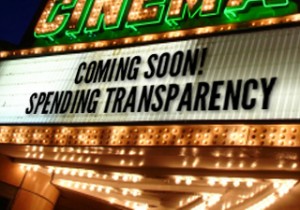
“We can easily forgive a child who is afraid of the dark. The real tragedy of life is when men are afraid of the light,” said Plato more than 2,300 years ago. He’d certainly find tragic that citizens in Pennsylvania remain in the dark when it comes to how their government spends their hard-earned tax dollars. This despite many other states finding ways to shine light into dark places, like in Missouri, where Show-Me State watchdogs logged on to a state transparency Web site to discover government guzzled more than $1.6 million at coffee shops, didn’t get the picture in spending $387,000 at frame stores and gobbled up $71,000 in taxpayer dollars in donuts.
According to Americans for Tax Reform, 31 states have already established online spending databases. The federal government enacted its own spending portal in 2007, backed by a bi-partisan coalition including John McCain, Tom Coburn and then-Senator Barack Obama.
Truly, the Keystone State is in an information abyss, but the shade may soon be pulled open, allowing the sun to shine on state government.
PennWATCH (House Bill 15), sponsored by Rep. Jim Christiana, would create a user-friendly database with searchable information on all state government spending. The bill passed the Pennsylvania House unanimously on February 9. A similar proposal in the Senate, Senate Bill 105, sponsored by Sen. Pat Browne, is starting to move on the other side of the Capitol.
The bills have some differences-most prominently, which state agency would host the Web site-but these are minor quibbles compared with the need to give voters information on how their tax dollars are being spent. Last year, both chambers passed spending transparency legislation, but were unable to work together to agree on a single bill. A stalemate should not happen again, given the formidable fiscal challenge facing the Commonwealth.
This year’s budget deficit is pegged as high as $5 billion. Gov. Corbett and state legislators need every tool at their disposal to address the situation, especially as the governor has promised not to increase taxes. Giving the public information on how the entire $65 billion state budget is spent would support spending reform.
Across the country, elected officials realized substantial savings by opening up their states’ books to the public, which makes it easier to spot duplicative programs or opportunities for consolidation. Savings would be realized through more competitive bidding for state contracts and services, as potential vendors would be able to find past contracts and payments. Such efforts allowed Texas to identify $8.7 million in savings in duplicative contracts and unnecessary administrative expenses.
Transparency will also reduce the costs of complying with “right to know” requests. In fact, Terry Mutchler, Director of the Pennsylvania Office of Open Records, testified enhanced transparency could reduce information requests by 30 percent in the commonwealth-which would save staff time and costs.
Most importantly, transparency can transform Pennsylvania’s culture of political corruption. With complete transparency, Mike Veon’s funneling of tax dollars through a non-profit for personal gain or former Senator Fumo’s taxpayer-funded purchase of 19 vacuum cleaners for his four homes would have been posted online and quickly discovered. Rep. Bill DeWeese, indicted in the Bonusgate investigation, explained the use of tax dollars for election work could have been prevented if spending transparency had been enacted. Fiscal transparency not only encourages responsibility but discourages unscrupulous and costly back-room deals.
Moreover, statewide spending databases require little investment. Most states have spent between $30,000 and $300,000 with no correlation between costs and the quality of the database. The average cost was $140,000, and nine states created Web sites with no additional funding. Many states overestimated the costs to build a database. Oklahoma appropriated $300,000 from existing revenue but was able to secure a contract for only $8,000 plus staff time. Without a doubt, spending transparency will pay for itself many times over.
Greater transparency is something everyone can get behind-Republicans, Democrats, legislators and voters all support openness in government spending. The General Assembly now has a golden opportunity to deliver on campaign promises to adopt transparency and catch Pennsylvania up with the rest of the nation by shining the light into the dark process of how taxpayers’ money is being spent.
Elizabeth Stelle is a Research Associate at the Commonwealth Foundation (www.CommonwealthFoundation.org), an independent, nonprofit public policy research and educational institute based in Harrisburg.